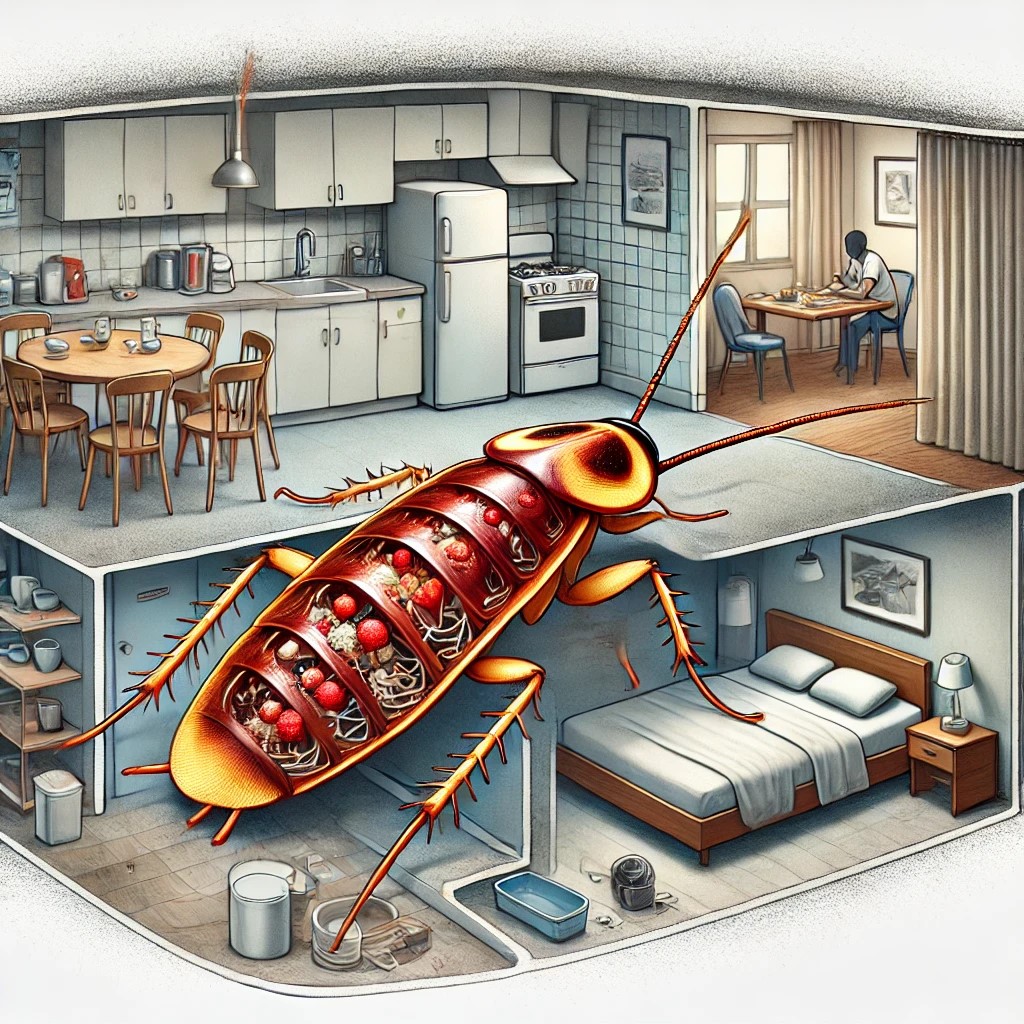
Cockroaches are a common and persistent threat in various spaces inhabited by people, such as homes, hotels, and restaurants. These insects, known for their resilience and adaptability, are not only a nuisance but also pose serious risks to public health and the integrity of objects and food they encounter. By freely moving between unsanitary areas and places where food is prepared or consumed, cockroaches become carriers of bacteria, viruses, and other pathogens that can trigger diseases in people of all ages and conditions. Although the threat they represent affects homes and businesses alike, there are specific risks in environments such as hospitality and food service, where the image and health of clients and residents are at stake.
The contamination caused by cockroaches occurs primarily due to their ability to transport pathogenic organisms on the exterior of their bodies. As they explore areas like drains, garbage, and sites with organic waste, their legs and bodies become impregnated with microorganisms, including bacteria such as Salmonella and Staphylococcus, as well as viruses and parasites. When they come into contact with kitchen surfaces, food, utensils, and even personal items, they deposit these infectious agents, which can cause anything from gastrointestinal infections to allergic reactions. Among the microorganisms they commonly transport are those responsible for serious diseases, such as salmonellosis—caused by Salmonella bacteria—and cholera, due to the Vibrio cholerae bacterium. Other agents, such as the Coxsackie virus and certain protozoa like Giardia lamblia, are also among the dangerous organisms that these pests can spread.
The damage cockroaches can cause is not limited solely to health issues. In their constant search for food and shelter, they are capable of gnawing on paper, fabric, cardboard, and other materials in their environment, leading to the deterioration of valuable or functional items, such as books, documents, clothing, and food packaging. This activity not only implies the loss of important elements but also indicates a clear sign of poor hygiene, which can jeopardize the reputation of any establishment. In the case of hotels or restaurants, the sighting of even a single cockroach can have immediate and negative consequences, as the impact on the business’s image can lead to cancellations and, in severe cases, health sanctions or temporary closures, depending on local health regulations.
However, controlling these pests is not always simple. The improper use of insecticides and other substances can be counterproductive. When attempting to eliminate an infestation without adequate knowledge, cockroaches often develop resistance to chemicals, resulting in populations that are harder to control and increasing the risk of poisoning for humans and pets due to residual chemicals. Furthermore, the environmental impact of excessive pesticide use can harm not only the people in the area but also the surrounding ecosystem.
The prevention and control of cockroaches, therefore, require a systematic approach. Maintaining strict hygiene in kitchen and storage areas, sealing cracks in walls and ceilings, and storing food in airtight containers are essential measures. Additionally, in commercial settings, conducting regular inspections and relying on professional pest control services, such as those provided by Eco Fauna Control, is crucial to avoid the consequences of an infestation. Early detection and the adoption of appropriate preventive measures not only protect people’s health but also preserve the reputation of establishments and ensure the peace of mind of households. Ultimately, maintaining a healthy and safe living environment depends on the effective control of pests like cockroaches, whose threats go beyond mere nuisance and directly affect the quality of life and safety of everyone involved.
